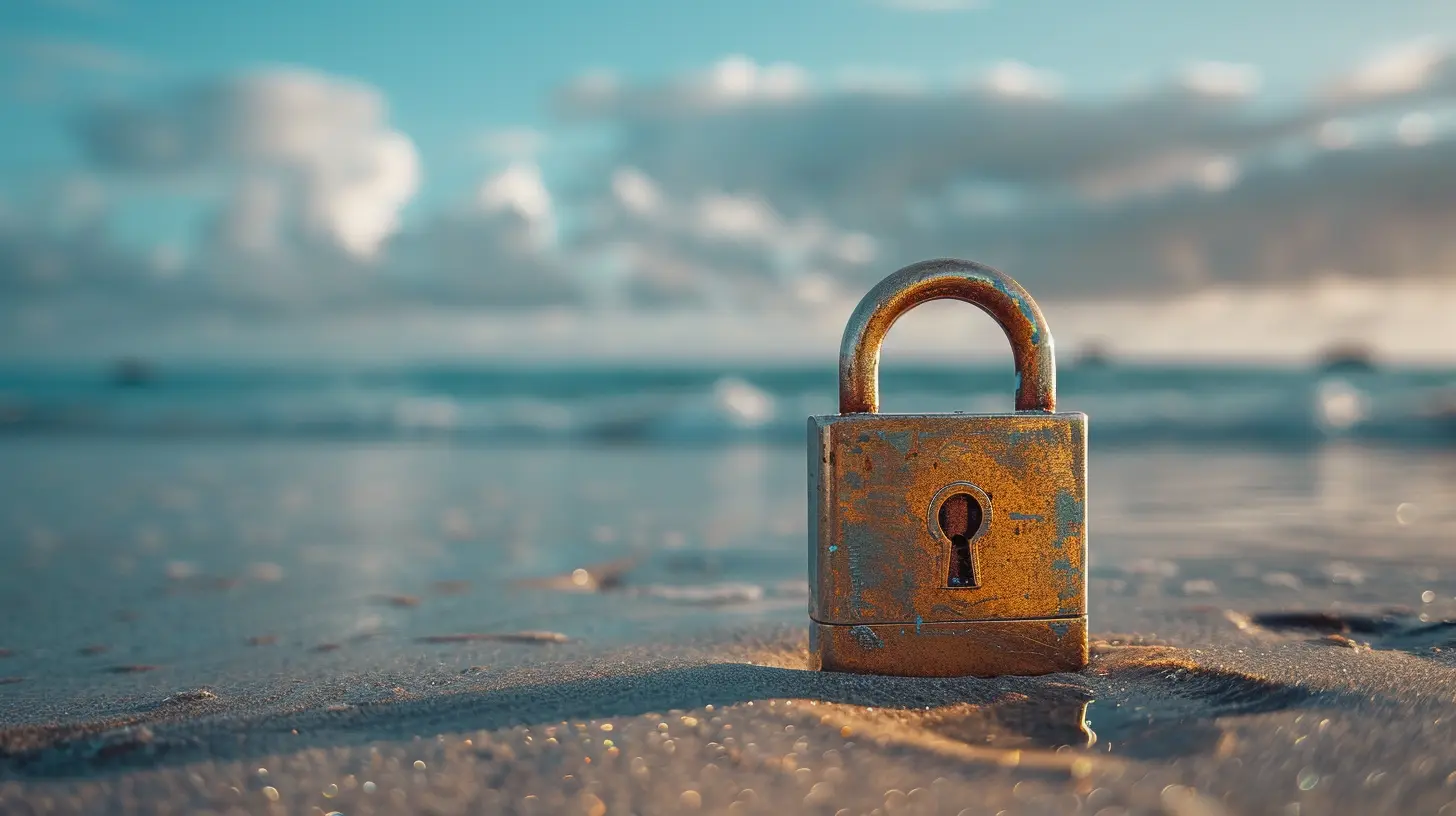Domestic vs. Offshore Asset Protection Trusts: Pros and Cons
16 July 2025
If you've been looking into ways to protect your wealth, you might have stumbled upon a little something called an asset protection trust. Think of it as a financial safety net — a legal structure designed to keep your hard-earned assets out of reach from creditors, lawsuits, or even certain legal actions. But here's where it gets a bit tricky: should you go domestic or offshore?
Yeah, it's kind of like choosing between a local bank and some mysterious (but maybe better sounding) vault in a far-off tropical land. Both have their perks, and both come with a few red flags waving in the wind. So, in this article, we’re breaking it all down. We’ll cover the pros and cons of domestic vs. offshore asset protection trusts, and by the end, you’ll have a much clearer idea of which option might work best for your situation.
Let’s dive in.
What Is an Asset Protection Trust, Anyway?
Before we start globe-trotting, let’s first get clear on what we’re talking about.An Asset Protection Trust (APT) is a legal structure where you transfer assets into a trust, and a trustee manages them on behalf of your beneficiaries. What makes these trusts special is that they’re specifically designed to shield your assets from potential threats — things like lawsuits, creditors, or even bankruptcy.
Now, there are two flavors:
1. Domestic Asset Protection Trusts (DAPTs) – Set up within U.S. jurisdictions.
2. Offshore Asset Protection Trusts (OAPTs) – Set up in foreign jurisdictions, like the Cook Islands or Nevis.
The idea is the same: protect your stuff. But the way they do it (and how effective they are) can vary wildly.
Why Bother With an Asset Protection Trust?
Let’s be real. We live in a world that’s become overly litigious. You can do everything right and still find yourself in the legal crosshairs. One angry ex-business partner, one freak lawsuit, and boom — your retirement fund, real estate, or investments could be on the line.Asset protection trusts aren’t just for millionaires or celebrities. They’re for anyone who wants to sleep a little better at night knowing their financial future is a bit more secure.
Domestic Asset Protection Trusts (DAPTs)
What Are They?
DAPTs are trusts set up in U.S. states that legally allow self-settled asset protection. That means you can create the trust, name yourself as a beneficiary, and still get some level of protection from creditors — something not all states used to permit.As of now, about 17 states allow DAPTs, including:
- Nevada
- Delaware
- Alaska
- South Dakota
- Wyoming
Each state sets its own rules, and some (like Nevada and South Dakota) are seen as more favorable than others because of their more robust protection laws.
Pros of Domestic Trusts
Let’s talk about why you might go with a DAPT:✅ Easier and Cheaper to Set Up
You’re working within your own country’s legal and financial systems, which means fewer layers of complexity. Translation: less expensive and less paperwork.✅ Familiar Legal Environment
You don’t need to jump through international hoops. If you ever need to go to court, it will be in the U.S., and you'll likely have local attorneys who understand the system.✅ Control and Access
You may retain more control over the trust as a settlor and even benefit from the assets while still getting protection (in certain states).✅ IRS Compliance Is Simpler
No foreign accounts to report or extra tax forms to file with the IRS. That alone can be a huge relief.Cons of Domestic Trusts
But hey, it’s not all sunshine and roses:❌ Not Guaranteed Protection
U.S. courts still have jurisdiction. A judge might just decide to pierce through your trust in certain cases — especially if they feel it was created in bad faith.❌ State vs. State Conflicts
Let’s say you live in California but set up a DAPT in Nevada. If you get sued in California, those laws might override Nevada’s protections. Yikes.❌ The Waiting Period Trap
Many DAPTs have a “seasoning period” — usually 2 to 4 years — before full protection kicks in. Creditors can still come after you during this time.
Offshore Asset Protection Trusts (OAPTs)
What Are They?
Now let’s talk exotic: Offshore Asset Protection Trusts are trusts set up outside the U.S., in countries with some very trust-friendly legislation. Think the Cook Islands, Nevis, Belize, Cayman Islands… that kind of vibe.These trusts offer more robust protection, but they also come with more complexity.
Pros of Offshore Trusts
Here’s where offshore trusts shine:✅ Stronger Legal Protection
Foreign jurisdictions are often way less friendly to U.S. creditors. That means if someone wants to get to your trust assets, they’ll have to take their lawsuit to a foreign court. That can be incredibly time-consuming, expensive, and in many cases, almost impossible.✅ Immediate Protection
Unlike DAPTs, where there's a waiting period, many OAPTs offer immediate protection from day one.✅ Privacy
Some offshore jurisdictions have stronger privacy laws. Your trust assets may not be a matter of public record, offering an extra layer of confidentiality.✅ Political and Economic Diversification
By moving part of your wealth offshore, you’re also hedging against potential instability in the U.S. economy or legal system.Cons of Offshore Trusts
Of course, there are trade-offs:❌ More Expensive to Set Up and Maintain
Legal fees, trustee fees, and compliance costs can add up quickly. We’re talking thousands of dollars — annually.❌ Complicated IRS Reporting
The IRS keeps a close eye on foreign financial accounts. You’ll need to file specific forms like FBAR and Form 3520, or face enormous penalties. Slip-ups can be costly.❌ Less Day-to-Day Control
You’ll often need a foreign trustee (due to legal requirements), and they may have the final say on how assets are managed or used.❌ Perceived as Sketchy
Even though offshore trusts are completely legal when structured properly, they sometimes raise eyebrows. You might get questions from banks, business partners, or even U.S. authorities.Domestic vs. Offshore: Which Is Better?
Let’s be honest — neither option is 100% bulletproof. But here's a quick breakdown that might help you decide:| Feature | Domestic Trust | Offshore Trust |
|-------------------------------|----------------------------------|---------------------------------|
| Cost | Lower | Higher |
| Legal Protection | Moderate | Strong |
| IRS Reporting | Minimal | Complex |
| Setup Time | Fast | Slower due to international laws|
| Privacy | Moderate | Stronger |
| Control | More hands-on | More trustee-managed |
| Risk of Legal Penetration | Higher | Lower |
Real Talk: When Does Offshore Make Sense?
If you’ve got significant assets (think $2 million and up), and maybe some elevated legal risk (like you're a doctor, entrepreneur, or in a litigious industry), an offshore trust could be a smart move.It’s also a solid option if you want serious, iron-clad protection and are willing to spend more to get it. You'll need a competent team to help set it up legally and ensure full IRS compliance — but it might be worth it.
And When Should You Stick with Domestic?
If your assets are more modest (say under $1-2 million), or if you’re just getting started with wealth protection, a DAPT might be the perfect first step. It’s also a great entry-level trust for people who aren’t ready (or willing) to deal with the cost and complexity of going offshore.Can You Combine the Two?
Absolutely. Some savvy folks use a hybrid strategy — maybe a DAPT for initial protection and then transfer to an offshore trust if needed later down the line (say, in the face of a serious lawsuit).There’s also such a thing as a “Bridge Trust” — a domestic trust that converts to offshore status when asset protection is triggered. Kind of like a transformation scene in a superhero movie.
Wrapping It Up
Choosing between a domestic and offshore asset protection trust isn’t a one-size-fits-all decision. It depends on your assets, risk level, budget, and how deep you’re willing to go into the world of trust structures.Here’s the bottom line:
- Want more simplicity, lower costs, and ease of use? Go with a domestic trust.
- Need the highest level of protection and don’t mind the extra hassle? Offshore is where it’s at.
Either way, don't try to DIY this. Work with experienced attorneys and financial advisors who specialize in asset protection. Because when you're protecting your future, cutting corners just isn’t worth it.
all images in this post were generated using AI tools
Category:
Asset ProtectionAuthor:

Angelica Montgomery
Discussion
rate this article
1 comments
Kairo McConnell
This article provides valuable insights into asset protection strategies. Understanding the nuances of domestic and offshore trusts can empower individuals to make informed financial decisions for better security.
August 1, 2025 at 3:30 AM

Angelica Montgomery
Thank you! I'm glad you found the insights valuable. Understanding these strategies is crucial for effective asset protection.


